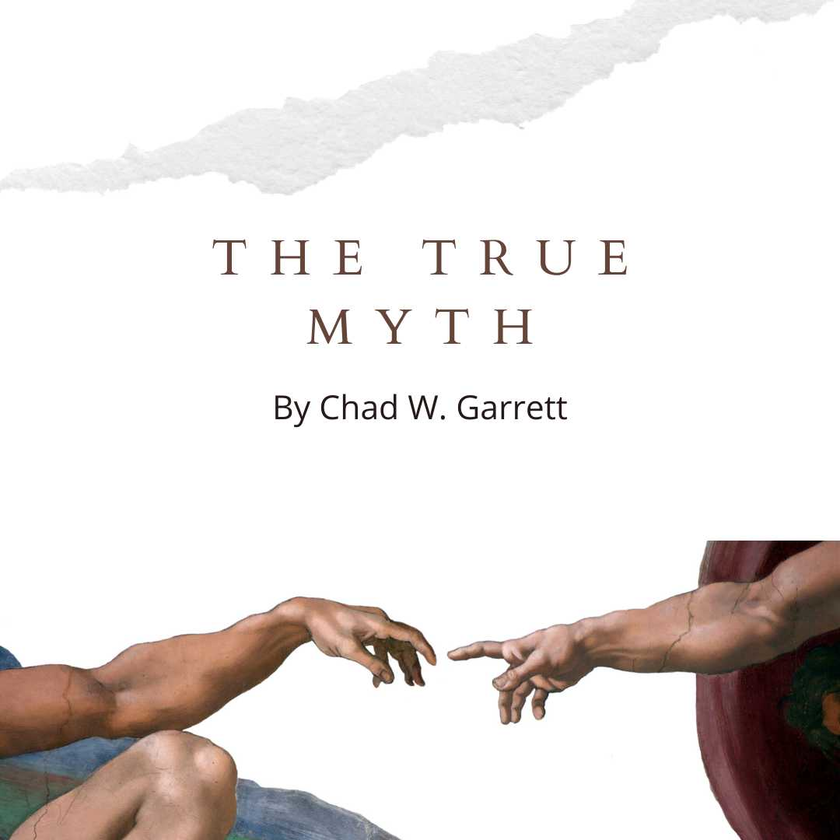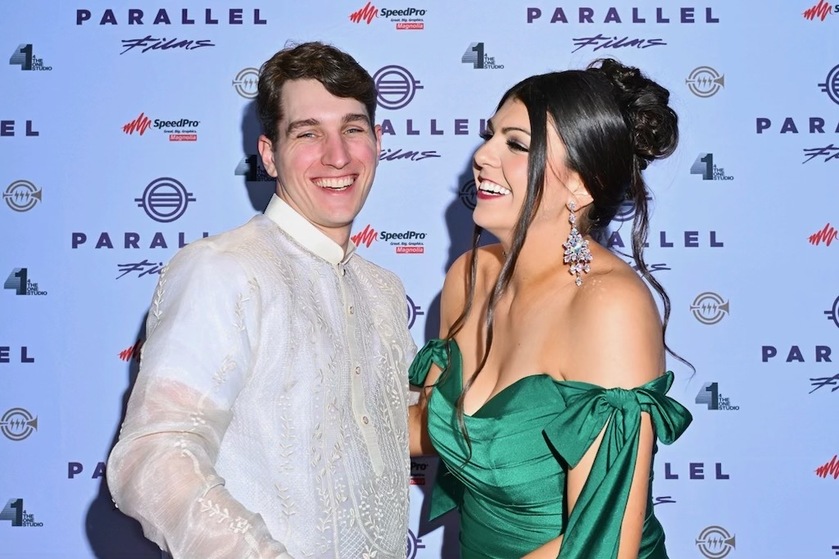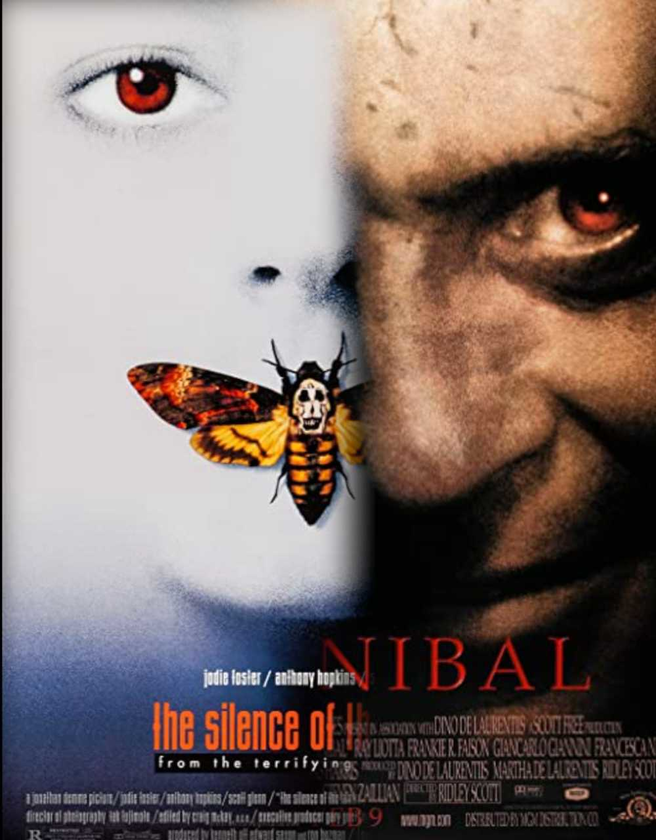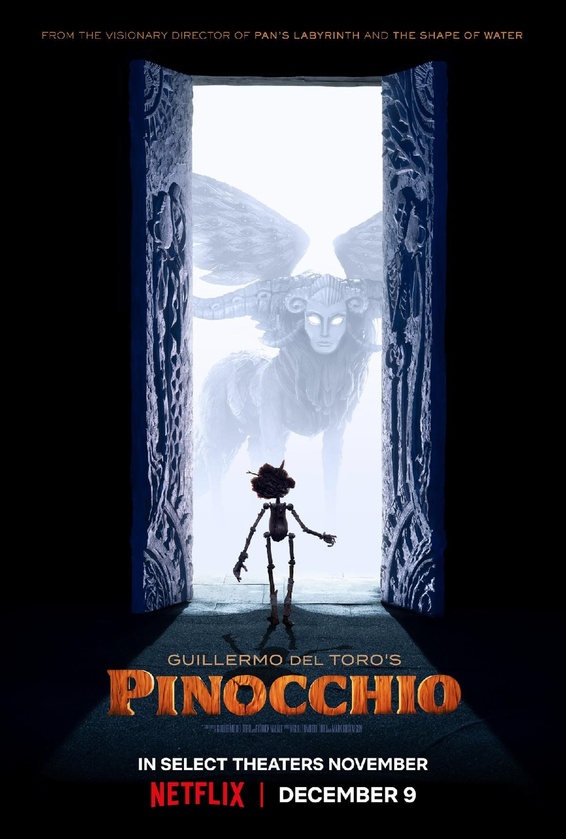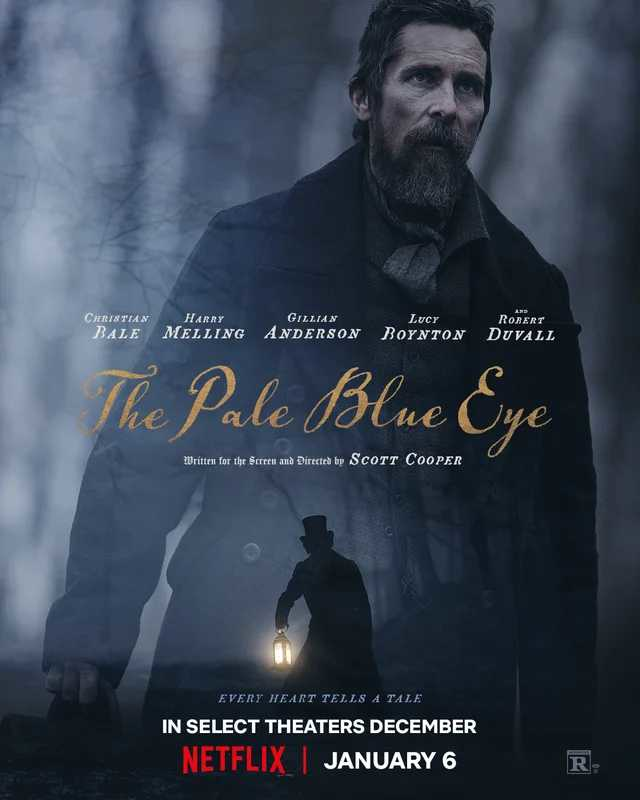ARTICLE: The True Myth by Chad W. Garrett
In the late 1930s, a group formed near Oxford to discuss literature, with a specific fascination for myth. From this group grew many friendships, one of which quite literally saved a man’s life. This man’s name was Clive. His friend’s name was John. By convincing Clive, through many a conversation into the waning hours of the night, that there was one true myth – and that this myth had the power to save – John managed the impossible. What you read now is a retelling of that myth.
Once upon a time, in a land forever locked away, a man lived blissfully with his wife. He was strong and kind, she was gentle and compassionate, and both were beautiful beyond comparison. Together they were good – very good. The land was theirs, as were all the creatures in it. In this land, there was no age, no pain, no death. Man and Wife loved each other deeply and often, and when they were not indulging in the tastes of paradise or the paradise they found in each other’s arms on the soft loam turf, they were walking naked and unashamed through the creation given to them.
At the center of this land was a grove and this grove was home to a single tree. It was large and beautiful with fruit as plump and radiant as any in the land. But no matter how enticing the fruit was to Man and Wife, they had not eaten it. This act was an act of obedience - obedience to a law set forth by Creator. So, though Man and Wife knew the tree, its lines and cracks and crevices, and may have embraced in its shade a time or more before, the taste of that most radiant fruit remained a mystery.
So divine was Man and Wife that Creator would walk among them for company; after all, He loved them. His presence was joyful and true – a reminder of the truth of the land. It was true and good and beautiful; a reflection of all the things Creator was Himself, though His greatest reflection was Man and Wife with whom He would walk – for they, like Him, were free.
Man and Wife respected Creator. They feared Him and desired to be more like Him. It was a desire that Creator knew well. It was an honest desire. A desire born of that ultimate reflection: freedom. It was a desire Creator had seen lead to ruin before and knew it would lead to ruin again.
And ruin came.
One day a new voice entered the land. One familiar with the freedom Creator could give. One intimate with the titanic force called ruin. This voice found a body among the creation. It had a tongue that could point down two paths at once. Its skin made it slippery and hard to hold. Its lidless eyes made its expressions impossible to read. A perfect vessel for confusion and deception. It reflected the voice perfectly - confusing to understand and nearly impossible to grasp.
Man and Wife were used to conversing with creation. Creator had taught them how. When Creator was not present their talks with creation became longer, for they did not have Creator Himself to speak with. Therefore, they knew the creature the voice had taken captive, so when the creature met Man and Wife in the grove of the single tree, they were not surprised or afraid.
Instead, they were deceived.
Lip and tooth met a forbidden flesh, and juice gushed into Wife’s mouth. Then Man, with a gentle smile, took the fruit and ate it too.
Whatever Man and Wife had thought the fruit would taste of it surely was not this. The truth was bitter in their mouths, and though they ate, they wiped the excess away, not wanting another taste. Whatever joy they thought would follow did not come. Like the bitter taste that lingered, regret spilled through them. Man and Wife knew they had disobeyed.
In place of satisfaction, Man and Wife had only questions. Whatever innocence had been preserved by their obedience to Creator evaporated with the high, beating sun. They became ashamed of their forms, even having known each other, so they covered their bodies with what little the land could provide.
Having sensed the presence of ruin upon Man and Wife, Creator returned to walk with them once more. But when Creator arrived at the grove where He knew them to be, Man and Wife hid in the center of the tree.
“Why do you hide,” Creator said. “Do not be afraid.”
But they were afraid. Man and Wife knew of right and wrong, of obedience and disobedience, of anger and wrath. The fruit had given them this and robbed them of bliss. They feared Creator now. Feared for they were naked. Feared the creature who had led them to an irreversible fate. Feared Creator, and His wrath for He had been betrayed.
“Who said you were naked? This did not matter before.”
They could sense Creator’s wrath and begged for mercy.
Creator turned His wrath on the deceiver who brought ruin to this land as it had brought to itself. “I have cast you down before, and I cast you down again. Crawl.” The words fell like a hammer to anvil. What power the fork-tongued creature had was cast out in that moment as it was reduced to a coiled puddle on the turf. Man and Wife flinched when Creator turned back to them. They did not wish to crawl for eternity as their deceiver would. They pleaded again for mercy.
Creator’s face darkened. “Mercy, I do not offer.”
In a blink, the land was gone, as was the grove far within. Gates appeared and locked the passage back. Guards wielding flame and sword took post. Man collapsed to his knees. Wife began to wail.
Then Creator spoke in a gentle tone that lifted Man and quieted Wife:
“Life will now be hard. You shall now know the pain and suffering I spared you from. Death will shadow your steps for all your days.
“I knew your heart when you left me. I know it even still. You desired to be just like me. It is a burden you were never meant to bear. From your freedom, you chose to be bound, a slave to fleshly desires.
“When I found you, you hid in the center of the tree. Your hearts were there before you. They were there when you betrayed my trust. They were there the moment you desired to define good and evil for yourselves.
“When I made you, I said you were good. My word was not enough. For disobedience, I offer no mercy. All I offer is this.” Clothing appeared on Man and Wife, restoring to them a sense of dignity and virtue. They asked Creator what to call this gift. Creator answered, “Grace.”
Heartbroken from the betrayal, Creator said no more and withdrew from them.
Man and Wife clung to the memory of their time in the far away land. They remembered how they lived. They had cared for the land and its creatures, and they loved each other deeply. Clinging to this memory, they made their attempts to recapture that life in the painful land they now wandered. They did many things - the good reminding them of the land far away, the bad reminding them of their exile. The closest they could come to the bliss they had known was loving each other despite the pain.
This love brought forth the joy of family. Family brought forth misery and loss, jealousy and betrayal. Thus, war was brought by man to man’s world. But not so much as to stifle the growth of the children of Man and Wife. The process was painful for Wife. It would be forever painful for her daughters. Yet, it was the last great act of obedience Man and Wife paid to Creator. Be fruitful. So they were. From this obedience would come their salvation.
As the eons passed, Creator watched from beyond space and time. He wept at the suffering of Man and Wife. He despaired as brother slew brother. He became disheartened as generations forgot the truth of the far away land. He became angered as they desired to become creators themselves once more.
Malice, death, and near-complete annihilation followed. Creator’s broken heart nearly led Him to break the world, but His love stayed His hand. Hope still lingered in the hearts of a select few, so Created deemed them the Selected.
Creator desired to walk with the Selected. He desired to be among his creations once again. He knew their hearts. He desired that they knew His. He desired that they would know Him once more, but knew that they were not yet ready. So, instead of walking with them, Creator spoke. As the Selected heard His words, they remembered things long forgotten. They remembered truths left in the far away land. They remembered Creator’s heart. They remembered ‘Grace’ and came to know it not as garments for their naked bodies, but as garments for their naked souls. ‘Grace’ was a promise - a promise Creator intended to keep.
But even the Selected desired to know of good and evil, so Creator gave them millennia to understand. Devoid of the innocence given in the land beyond the guards and gate, the heart of man would forever fall to the deceit of the fork-tongued beast. The burden of defining ‘The Good’ was too much for the hearts of man.
As Creator watched man, He knew they were beyond atonement. No payment they could offer would redeem the innocence their forebears had paid for the knowledge that now poisoned them. Abandonment, as one abandons a land in famine or a part of their body that rots, was the only way. But, again, love stayed Creator’s hand.
Not being able to stand a constantly breaking heart as His creation defied The Good time and time again, but not being able to bring Himself to destroy them, Creator resigned Himself to the last remaining option. It was the option He knew He would come to even from the beginning. The solution was ‘Grace’.
Creator had always known Grace would be key. He knew it so deeply that the groundwork for Grace had been laid from the moment He made Man and Wife and told them to be fruitful. From this fruit came prophets and kings. Through the millennia of prosperity and slavery came the hope of all man. A maiden. Having never known a man, this maiden would bear a child.
This child was Creator Himself. It was the part of Him that had inspired the very image of Man. Man had been like a son to Creator, so Creator named this piece of Himself ‘Son’ and sent Son to walk among man, as He had in the far away land.
Creator made the maiden in the image of Wife, for from Man He had made Wife, so it was fitting that from the image of Wife would come the image from which Man was made. The image of Wife bore Son, fully human, fully divine, into the broken world. However, Son knew of the far away land. He had walked there with Man at the dawn and was Man before Man was. Son knew of the innocence lost. Son had created the tree in the grove, and so Son knew of good and evil and was qualified to judge it.
For all His power, Son did not live lavishly. He lived a modest life, working with His hands, knowing all the pain and toil Creator had promised Man in his exile. Son made the tree in the grove, and knowing that tree had brought ruin to man, Son became a carpenter for He commanded the power to shape all trees.
Then Son was called to reveal Himself to man as He had been sent to do. He healed those who believed, shaping them as He did the trees in His carpentry. As He lived, He also judged, commanding that very knowledge from the tree in the grove that was too burdensome for man.
But Son’s purpose was not to walk with man as He had in the far away land. It was not to shape them as He had the trees. He had not come to judge. His purpose was more significant. His purpose was more tragic. Son had come to be abandoned. First, He would be abandoned by the descendants of Man with whom He had so blissfully walked. Then, He would be abandoned by Creator to pay for the disobedience of Man.
Enemies believing they knew better of good and evil than Son poisoned the minds of the people. Like rot setting in at the root, the people turned from awe and praise to vehement disgust. They reviled Son and His words and works so greatly that when given a choice between Son and a demon, they chose to save the latter.
Thus, Son was condemned. Betrayed by the loved, rebuked by those He had come to save. Death would not come quickly. Imprisoned, His knees and face bled from being thrown and bullied by his captors. Chained to a post, His flesh was rent from the body by bone tipped lashes till His organs showed on His bare back. He slept in a pool of His own blood, overwhelmed with pain, until His captors retrieved Him again. When they did, barbs were crushed into His brow. A mockery of the King He deserved to be treated as. Son was then forced to carry a tree made by man, bleeding through the streets, till mortal strength failed Him. At the place called Skull man continued their vile work. They pinned Son to the tree by driving iron nails through wrist and ankle. This man-made tree, a monstrous tool for unspeakable evil masked in a delicious name like ‘Justice’, would hoist Son and hold Him above the ground like rotting fruit on a limb, a feast of carrion.
Man began this journey by placing his heart at the center of a tree made by Creator for the knowledge it held on its limbs. Now a tree made by man bore the weight of the maker and shaper of trees, the knowledge of all things hoisted to die and fade like the innocence of Man in the far away land.
As He hung on the abomination, Son looked at Creator from the broken mortal realm and cried, “Creator! Why have you abandoned me?!”
Creator looked down at His other self, the best part of Himself, and said, “Because I must.”
Son died on that monstrous tree, abandoned for deeds He did not commit.
Pure. Innocent. Fully divine. A maker and shaper of trees, murdered upon a bastardization created by man. Atonement for unspeakable evil that no physical pain could cover. Only abandonment could. Thus Son perished not from pain or suffocation; He died of a broken heart.
Son returned to those that followed Him within the mortal realm. He left His humanity when He perished upon the tree, so his appearance was not that of a man. It was fully divine. His appearance affirmed what they had already come to know; that His abandonment paid for theirs.
Son came home to Creator after departing the mortal realm. “How did I do,” Son asked.
Creator looked again upon the perfection that was Son. The best parts of everything Creator was. “You,” Creator said, “You were perfect.”
The Myth isn’t finished. Now we get to live it. Our souls were saved by a deeper pain than anything physically possible to experience. It was a pain endured that we would never have to be abandoned.
Happy Easter.
#ForerunnerPublications #Article #ChadGarrett #Easter


